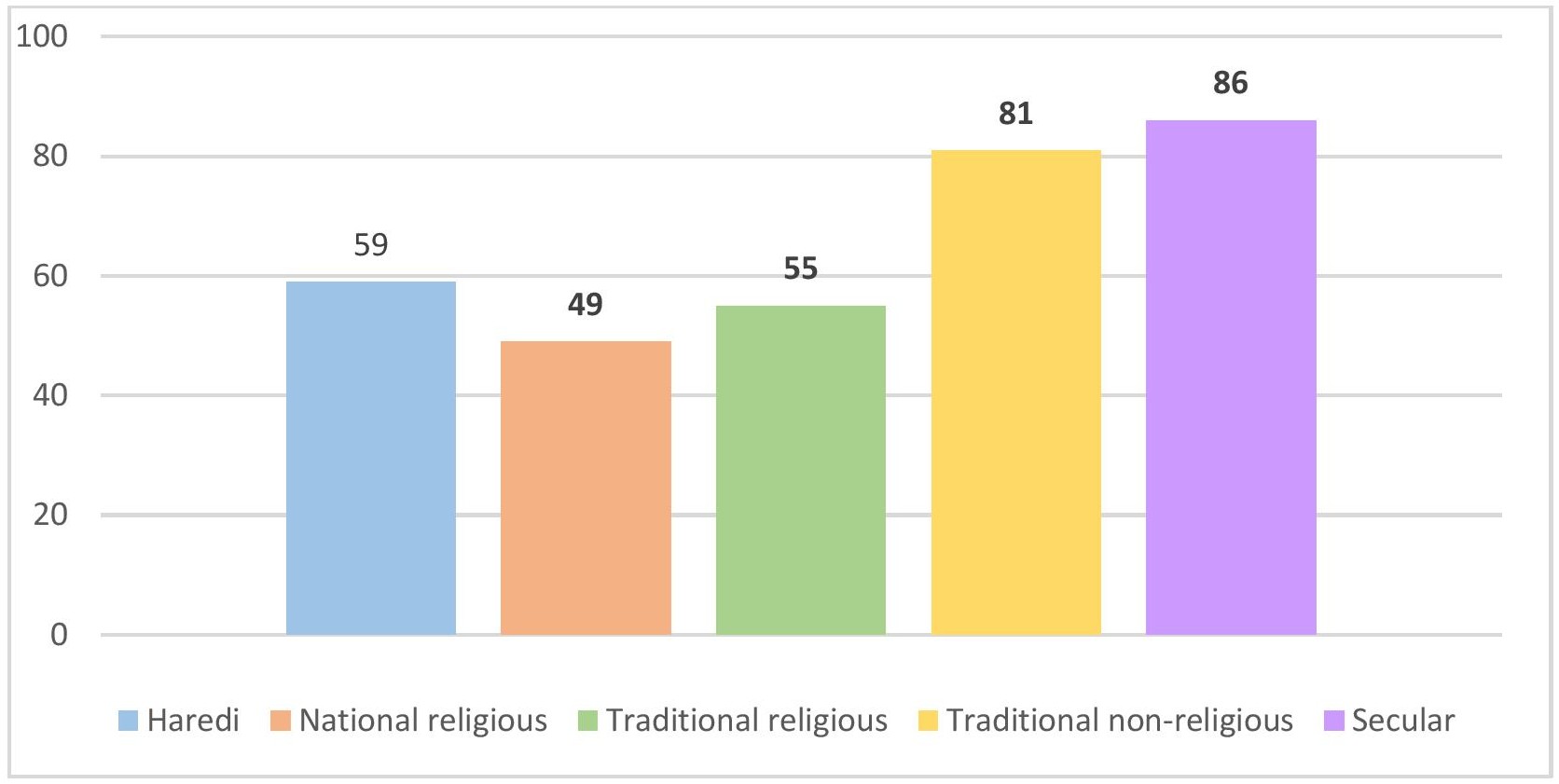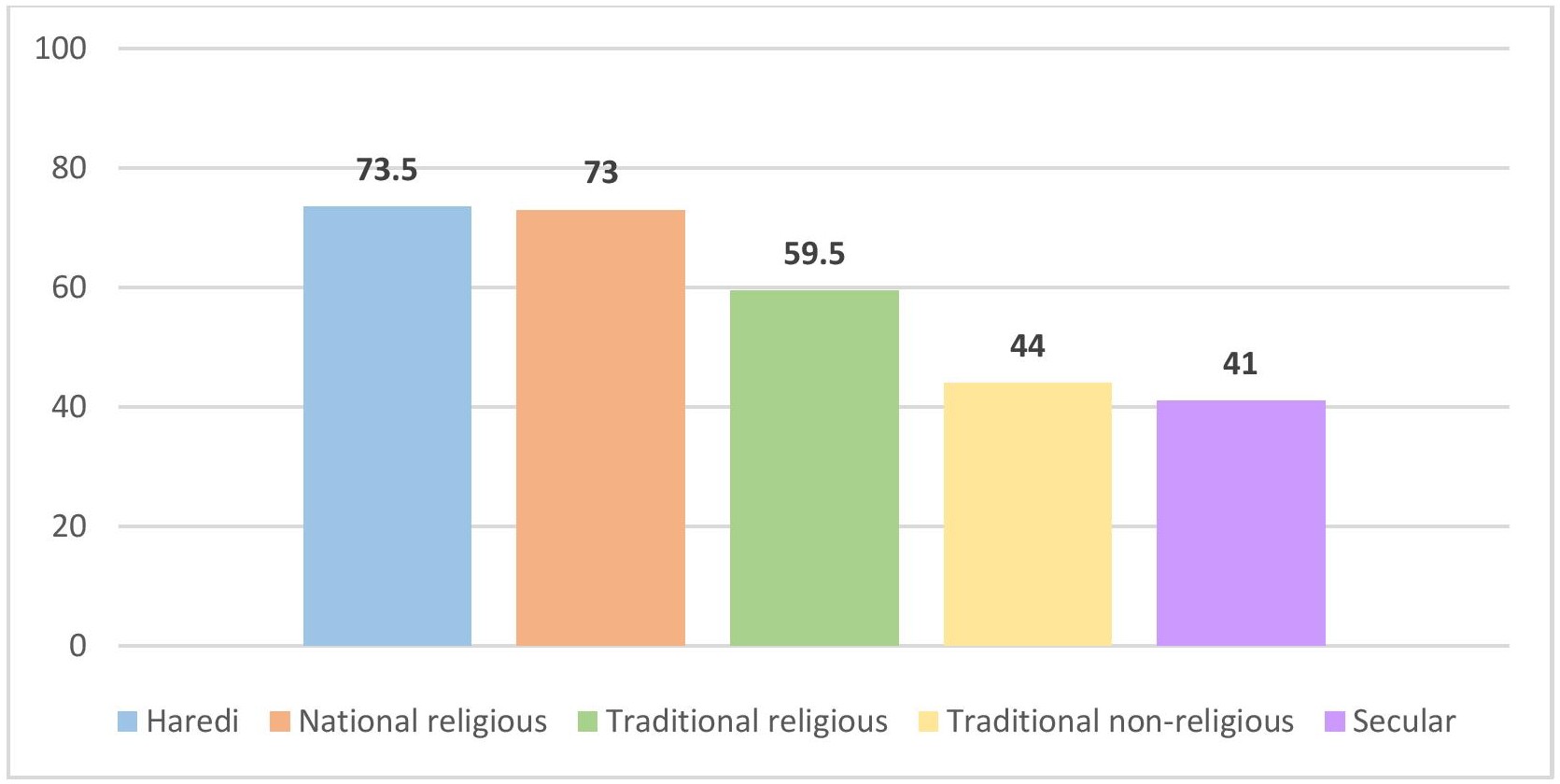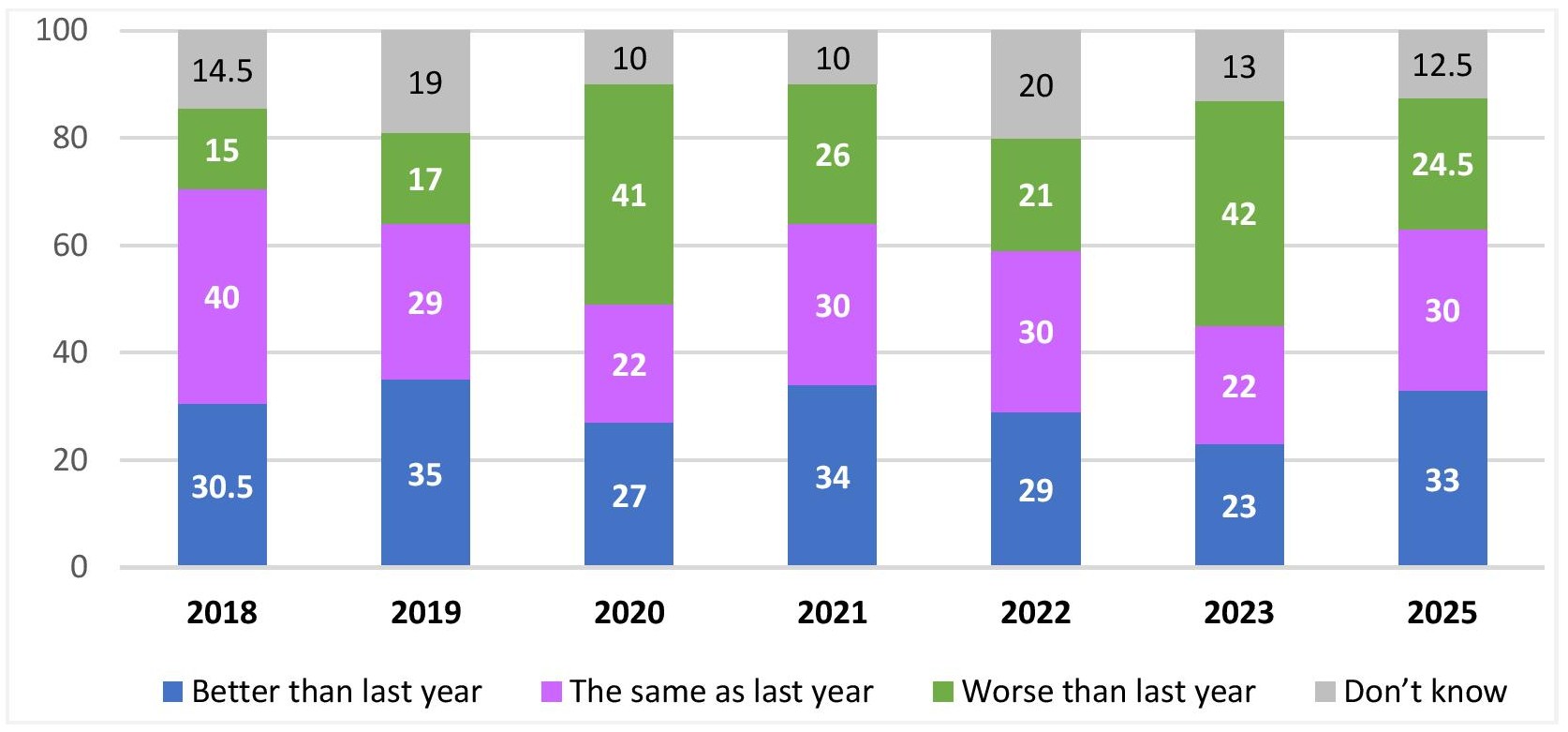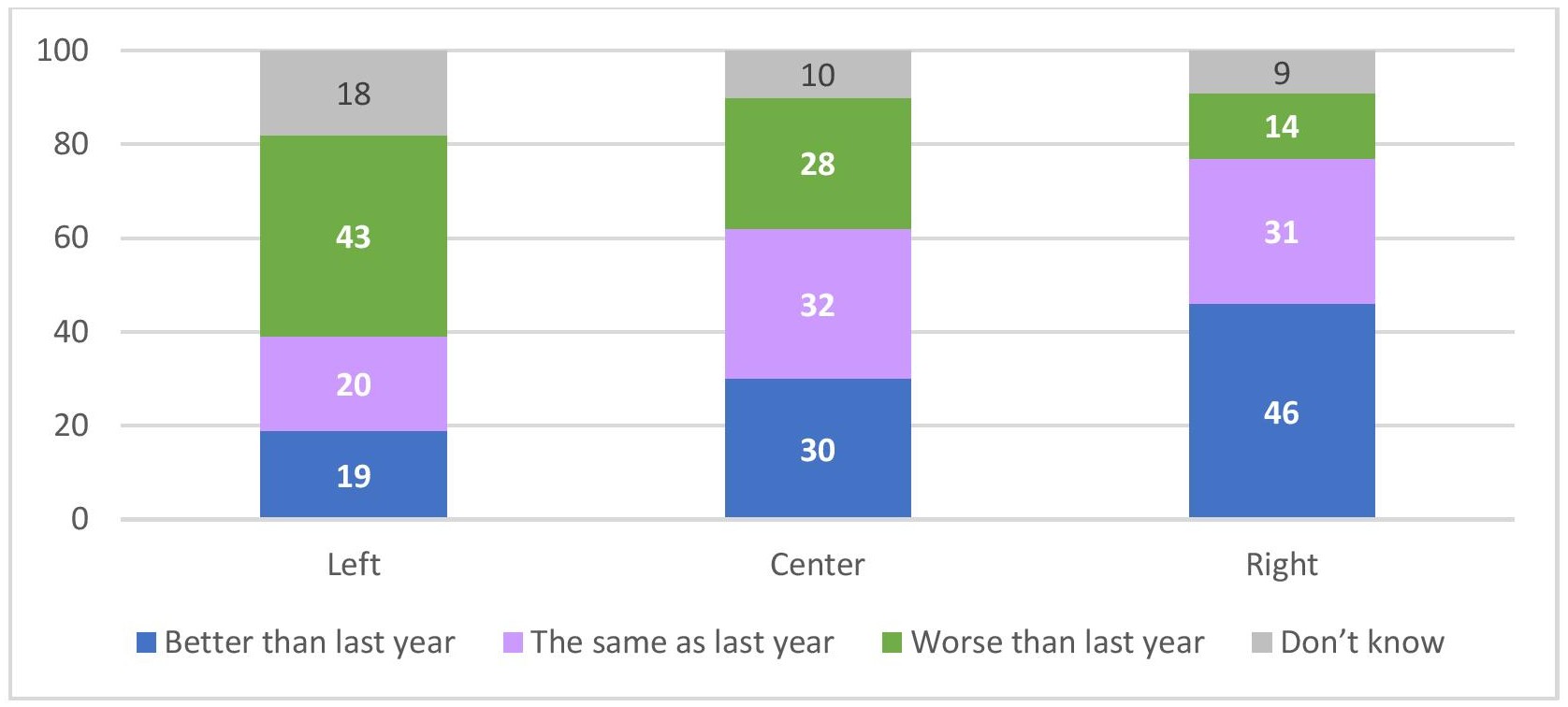Rosh Hashana Poll: Mixed Outlook on the New Year
Heading into the Jewish New Year, Israelis express a poor national mood, though are less pessimistic about the year ahead as they were at this point last year.

Photo by Mendy Hachtman/ Flash90
Methodology
The survey was conducted by the Viterbi Family Center for Public Opinion and Policy Research at the Israel Democracy Institute between August 24–28, 2025. It was based on a representative sample of the population in Israel aged 18 and above, comprising 600 Jewish interviewees and 150 Arab interviewees.
National mood: The majority of the general public (71%) believe that the national mood head of the new year is fairly poor or very poor. Interestingly, this view is significantly more widely held among Jews (73%) than among Arabs (58%). However, it should be noted that when we asked a similar question in August 2020 and August 2021—that is, before October 7 and the “Iron Swords” war, but during Israel’s internal political crisis—the majority assessment of the national mood was also pessimistic, and again more so among Jews than among Arabs.
A breakdown of the findings of the current survey by political orientation (Jews) reveals a majority in all three camps who rate the national mood as fairly or very poor, though this majority is the smallest on the Right (Left, 93%; Center, 89%; Right, 61%).
As shown in the figure below, only in the national religious group does the proportion of those who assess the national mood as fairly or very poor stand at around a half. In all the other groups, this is the majority opinion.
Define the national mood ahead of the (Jewish) new year as fairly poor or very poor (Jews, by religiosity; %)

Personal mood: As in the past, this year we found once again that respondents’ reports of their personal mood ahead of the new year were better than their assessments of the national mood, which may suggest that the public tend to evaluate the national mood as worse than it really is.
On the personal level, the total sample is almost equally divided between those who define their mood as fairly poor or very poor and as fairly good or very good or (48% and 49.5%, respectively). Among Arab respondents, the share who define their mood as fairly or very good is considerably smaller than the equivalent share of Jews (39% and 52%, respectively).
Among Jewish respondents, the share of those on the Right who define their personal mood as fairly or very poor is about half the equivalent share on the Left, which is the most pessimistic camp (35% versus 69%, respectively). The Center is closer to the Left than to the Right in this regard, with 61% rating their personal mood as fairly or very poor.
The Haredi and national religious groups have the largest share of respondents who define their personal mood as fairly or very good, while the secular group has the smallest.
Define their personal mood ahead of the (Jewish) new year as fairly good or very good (Jews, by religiosity; %)

We cross-tabulated the responses to both questions in the entire sample and found that among those who rate the national mood as fairly poor or very poor, the majority (62%) give the same assessment of their personal mood. By contrast, among those who rate the national mood as fairly good or very good, an even larger majority (89%) also define their personal mood positively. In other words, assessments at one level influence assessments at the other.
Our findings show a significant decline in the total sample in the share of respondents who expect the upcoming (Jewish) year to be worse than the year now ending—from 42% last year (the largest share of respondents) to just 24.5% this year. Concurrently, we found a rise in the share of those who expect next year to be better (from 23% to 33%) and those who expect it to be similar to last year (from 22% to 30%).
What do you think the upcoming (Jewish) year will be like overall for the State of Israel? (total sample; %)

Breaking down responses in the Jewish sample by political orientation reveals that on the Left, the largest share of respondents expect the upcoming year to be worse than last year. Those in the Center are more or less evenly divided among the three possibilities, while on the Right, the largest share expect next year to be better than last.
What do you think the upcoming (Jewish) year will be like overall for the State of Israel? (Jews; %)

The August 2025 Israeli Voice Index was prepared by the Viterbi Family Center for Public Opinion and Policy Research at the Israel Democracy Institute. The survey was conducted via the internet and by telephone (to include groups that are under-represented on the internet) between August 24–28, 2025, with 600 men and women interviewed in Hebrew and 150 in Arabic, constituting a nationally representative sample of the adult population in Israel aged 18 and over. The maximum sampling error was ±3.58% at a confidence level of 95%. Field work was carried out by Shiluv I2R. The full data file can be found at: https://dataisrael.idi.org.il.
